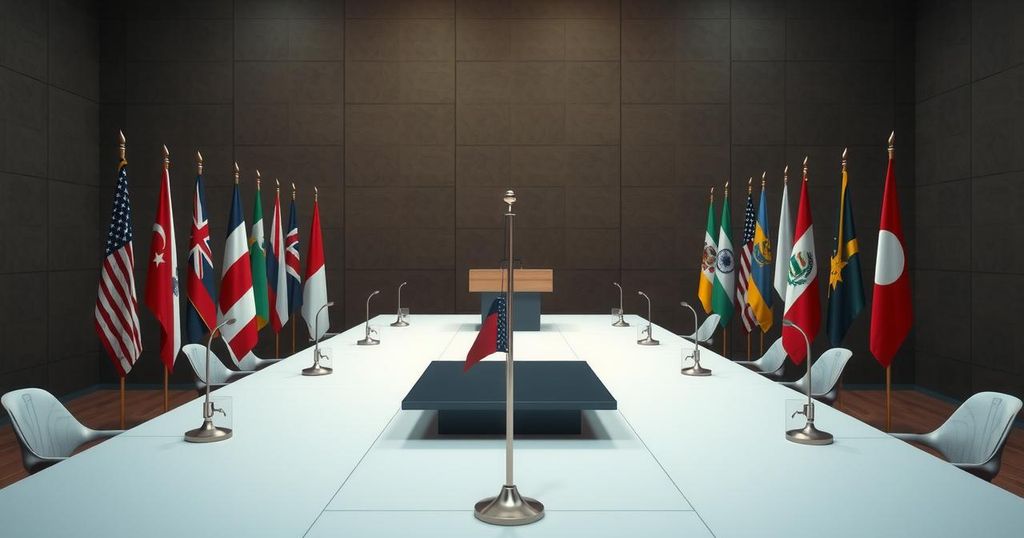Marco Rubio Withdraws from G20 Summit Over Controversial South African Policies

Secretary of State Marco Rubio will not attend the G20 summit in Johannesburg due to concerns over South Africa’s DEI and climate policies, which he describes as troubling. Tensions between the U.S. and South Africa have escalated in light of new expropriation laws permitting land seizure without compensation, particularly affecting white landowners. Such policies have sparked significant debate on historical land ownership issues rooted in apartheid.
Secretary of State Marco Rubio announced his withdrawal from the upcoming G20 summit in Johannesburg, citing grave concerns over South Africa’s promotion of Diversity, Equity, and Inclusion (DEI) and climate change policies. He criticized these initiatives as detrimental, stating, “South Africa is doing very bad things. Expropriating private property. Using G20 to promote ‘solidarity, equality, & sustainability.’ In other words: DEI and climate change.” Such an absence from the G20 summit is unprecedented for someone in his position, given the summit’s significance in global diplomacy.
Tensions between the United States and South Africa have intensified following former President Trump’s threats to withdraw funding due to new land expropriation laws enacted in January. These laws permit the South African government to seize land without compensation, particularly impacting land owned by white citizens, which has become a contentious issue rooted in the historical context of apartheid. The previous 1975 legislation required compensation for land taken by the government.
The South African government defends its expropriation laws as consistent with land acquisition laws prevalent in other nations. President Cyril Ramaphosa emphasized this perspective, asserting that South Africa’s funding from the U.S. is largely allocated to programs addressing HIV and AIDS. This debate regarding property rights recalls previous controversies during Trump’s presidency, notably his 2018 comments concerning the treatment of farmers in South Africa.
The backdrop of this situation is the historical legacy of apartheid in South Africa, where land ownership remains a sensitive issue. Despite only comprising seven percent of the population, white South Africans control nearly three-quarters of the farmland, which has led to calls for land reform. The Expropriation Act is part of South Africa’s efforts to address these disparities, leading to international scrutiny and backlash, particularly from the United States. The bilateral relationship between the United States and South Africa has been complicated by Trump’s previous statements regarding the treatment of farmers in the country. The introduction of these expropriation laws has reignited debates about race, land rights, and government authority, evidencing the challenges faced in reconciling historical injustices with contemporary governance.
In conclusion, Secretary of State Marco Rubio’s decision to abstain from the G20 summit highlights rising diplomatic tensions with South Africa regarding land reform policies. The Expropriation Act remains a focal point of international dialogue on equity and property rights, evoking significant historical contexts. The reactions from both American leaders and South African officials underscore the complexities of addressing these long-standing issues, and the potential ramifications on global diplomatic relations.
Original Source: www.thedailybeast.com







